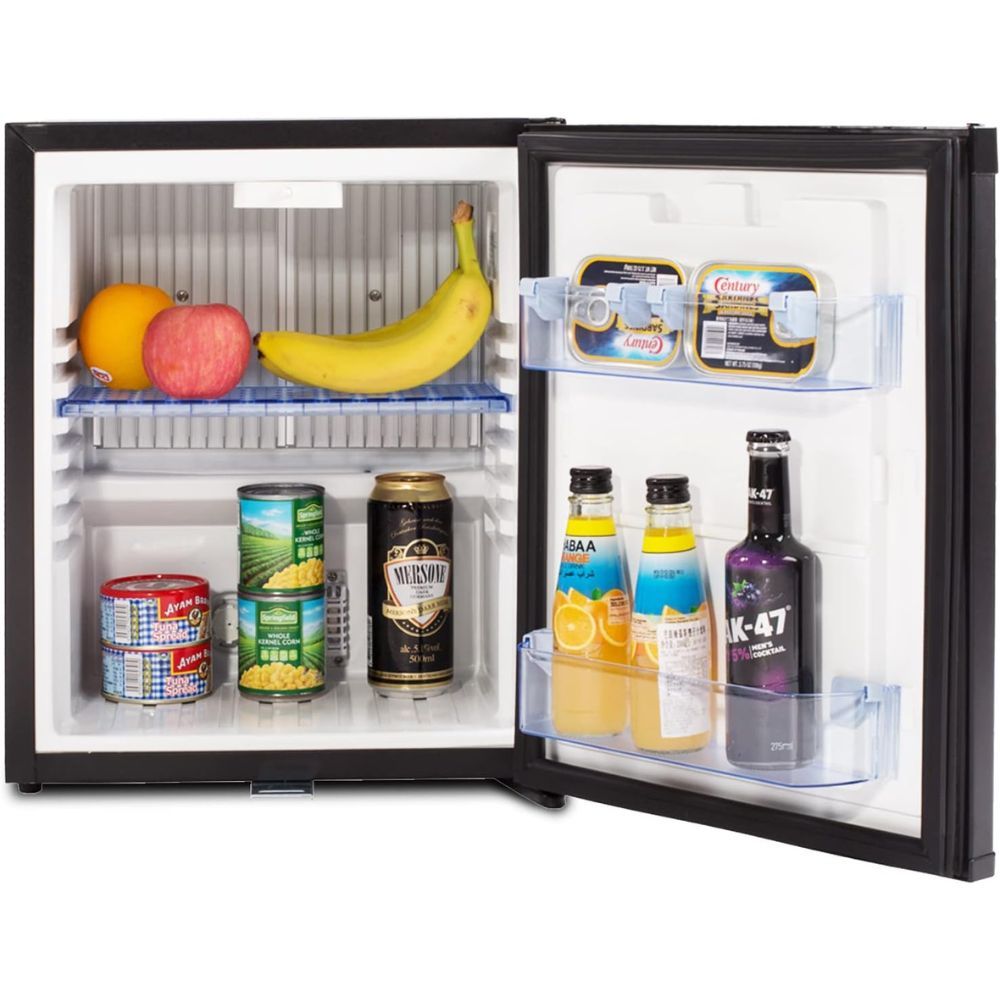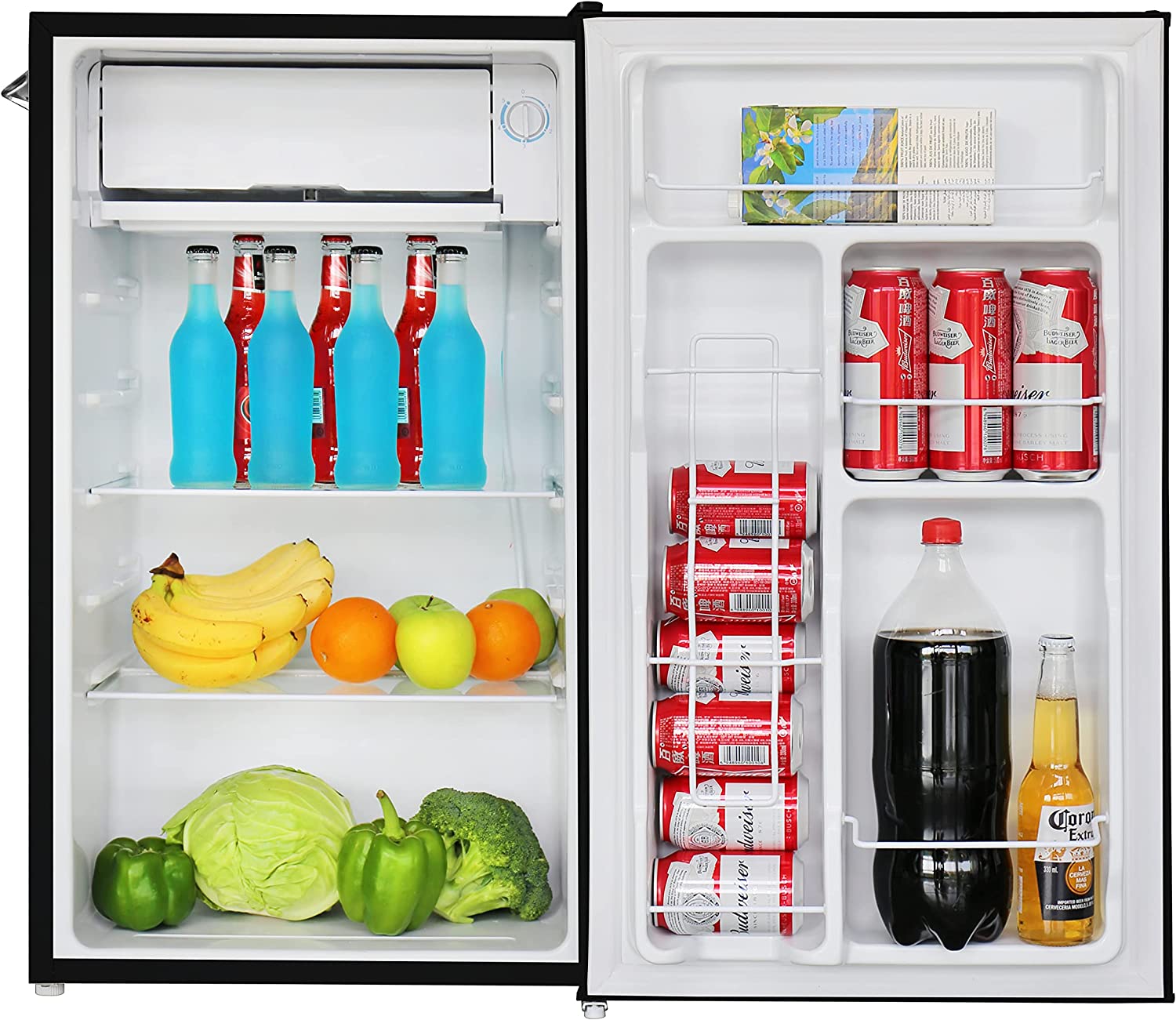Mini fridges, also known as compact refrigerators, have become a staple in many homes, offices, dorm rooms, and even cars.
Their compact size, versatility, and convenience have made them incredibly popular.
However, with this popularity comes a question that many users often ask: Can a mini fridge catch fire? The short answer is: very unlikely that a mini fridge catches fire.
This question is not only valid but also crucial for ensuring safety. After all, no one wants to deal with a fire hazard in their home or workplace.
In this article, we will delve into this topic and provide a comprehensive answer to this burning question.
Understanding Mini Fridges
A mini fridge is a small, compact refrigerator that is designed for convenience and space-saving.
They are commonly used in spaces where a full-sized refrigerator would be impractical, such as in a dorm room, office, or small apartment.
Mini refrigerators are also popular for use in recreational vehicles and boats.
The basic working principle of a mini fridge is similar to that of a regular refrigerator.
It involves a refrigeration cycle where a refrigerant absorbs heat from the fridge's interior and releases it outside, thus cooling the inside of the fridge.
This process involves several components, including a compressor, condenser, expansion valve, and evaporator.
However, unlike full-sized refrigerators, mini refrigerators are often designed to be more energy-efficient and less powerful.
This means they typically don't generate as much heat. But does this mean they can't catch fire?
We'll explore this in the next section. For more information on mini fridge safety, check out this Mini Fridges Safety Guidelines.

Can a Mini Fridge Catch on Fire?
When it comes to the question, "Can my mini fridge catch on fire?", the answer is yes, it can, but it's not a common occurrence.
Like any electrical appliance, a mini fridge has the potential to catch fire under certain circumstances.
One of the primary causes of mini fridge fires is electrical malfunctions. This can happen when the fridge's electrical components, such as faulty wiring or the compressor malfunctions and turns a mini fridge into a fire hazard.
For instance, if the fridge has faulty wiring and/or is damaged or frayed, it can cause a short circuit, which can potentially lead to a fire.
Another common cause is overheating due to poor ventilation. Mini refrigerators need to release heat to cool their interiors. If the fridge is placed in a confined space with inadequate ventilation, it can overheat and potentially catch fire.
A mini-fridge has a compressor located at the back which helps in circulating the gas refrigerant through the coils. The compressor's purpose is to keep the inside of the fridge cool while making the outside warm.
But, if the external coils overheat, they contract and prevent gas refrigerant from cycling. This can lead to an explosion due to increased pressure from the accumulated gas inside the coil over time.
Other external factors, such as a power surge or a flammable object coming into contact with the fridge, can also cause a fire. However, it's important to note that these incidents are relatively rare.
Mini refrigerators are designed with safety in mind, and fires are not a common occurrence.
For more insights on this topic, you can read this article on Understanding Fire Hazards in Fridges.


Compact Mini Fridges
Safety Tips for Using a Mini Fridge
To prevent a mini fridge from catching fire, there are several safety measures you can take:
Proper Ventilation:
Ensure your mini fridge is placed in a well-ventilated area. There should be enough space around the fridge for heat to dissipate effectively. Stacking papers or other clutter around the refrigerator can cause a fire hazard.
Regular Maintenance:
Regularly check your mini fridge for any signs of damage or wear. Pay particular attention to the fridge's electrical components. To prevent dust from blocking the airflow, it is recommended to use a vacuum cleaner attachment to dust the coils on a regular basis. fridge cold
Correct Usage:
Follow the manufacturer's instructions for using the mini fridge. Avoid overloading the fridge or using it in a way that it's not designed for.
Proper Placement:
Don't use your mini fridge outdoors unless it is designed for that purpose.
By following these safety tips, you can significantly reduce the risk of your mini fridge catching fire.
For more safety tips, check out this Safety Tips for Compact Refrigerators guide.
Common Misconceptions About Mini Fridges and Fire
When it comes to mini refrigerators and fire, there are several misconceptions that often circulate.
Let's address some of these to provide a clearer understanding of the risks involved.
Misconception 1: Mini Fridges Always Overheat and Catch Fire
One common misconception is that mini refrigerators are always prone to overheating and, consequently, catching fire.
While it's true that a mini fridge, like any electrical appliance, can overheat under certain circumstances, this doesn't mean it will always catch fire.
Overheating can be caused by factors such as poor ventilation or a malfunctioning component, but these issues can often be prevented with proper care and maintenance.
Misconception 2: Mini Fridges Are More Likely to Catch Fire Than Regular Fridges
Another misconception is that mini refrigerators are more likely to catch fire than regular-sized fridges.
This is not necessarily true. The risk of a fridge catching fire, whether it's a used mini fridge, new compact fridge or a regular-sized fridge, largely depends on its condition and how it's used.
A well-maintained and properly used fridge, regardless of its size, is unlikely to catch fire.
Misconception 3: All Mini Fridges Are Fire Hazards
Some people believe that all mini fridges are fire hazards. This is not the case. While it's possible for a mini fridge to catch fire, it's not a common occurrence.
Most mini refrigerators are designed with safety features to prevent such incidents.
Furthermore, adhering to safety guidelines, such as ensuring proper ventilation and regular maintenance, can significantly reduce the risk of fire.
While it's possible for a mini fridge to catch fire, it's not a common occurrence.
By understanding the facts and dismissing the misconceptions, we can use mini refrigerators safely and effectively.
FAQs
Frequently asked questions about fire hazards associated with both a new and a used mini fridge are listed below.
Is it safe to leave a mini fridge plugged in?
Yes, it is generally safe to leave a mini fridge plugged in. Mini refrigerators are designed to run continuously. However, it's important to ensure that the fridge is in good working condition and that it's not overloaded.
Can a mini fridge overheat?
Yes, a mini fridge can overheat, especially if it's placed in a poorly ventilated area or if its cooling system is malfunctioning. Regular maintenance and proper placement can help prevent overheating.
Can you run a mini fridge all day?
Yes, you can run a mini fridge all day. In fact, most refrigerators are designed to run 24/7. However, to conserve energy and prolong the life of the fridge, it's advisable to turn it off if it's not in use for an extended period.
Why does my mini fridge feel hot?
It's normal for the exterior of a mini refrigerator to feel warm or even hot. This is because the fridge releases heat to the outside as part of its cooling process. However, if the fridge feels excessively hot, it could be a sign of a problem and should be checked.
Refrigerator fire hazard -Western Driven Lifestyle
In this article, we've explored the question, "Can a mini fridge catch on fire?", and addressed some common misconceptions about mini refrigerators and fire.
We've learned that while it's possible for a mini refrigerator to catch fire, it's not a common occurrence. Proper care, regular maintenance, and adherence to safety guidelines can significantly reduce the risk.
Remember, safety should always be a priority when using any electrical appliance, including mini refrigerators. Stay safe and enjoy the convenience of your mini fridge!









